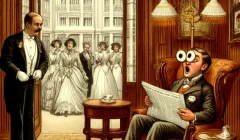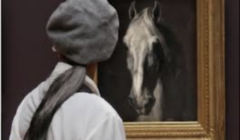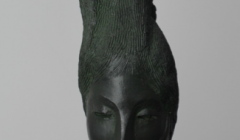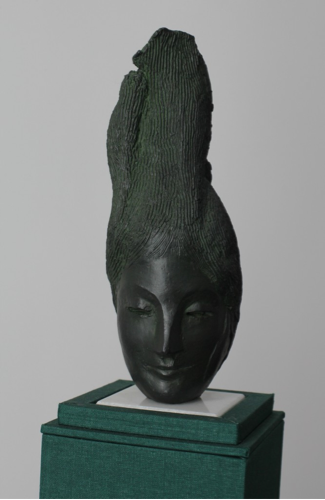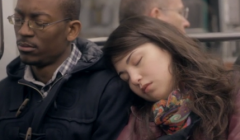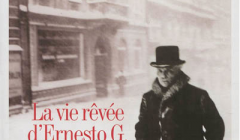Here some very short (one-paragraph) unpublished reviews of works of non-fiction I have enjoyed and would recommend for at least some readers. In the reverse order in which I read them, not of publication, so most recent reads first:
December 2025:
Soft: A Brief History of Sentimentality, by Ferdinand Mount:
A fun and mostly convincing broadside against the many writers (and the movements they represented) who, over many hundreds of years, have attacked sentimentality as a form of false feeling. Mount shows such attacks were often motivated by naked snobbery, and also that they ignored or (worse) systematically devalued the many social reforms that were propelled by such “sentimental” waves of journalism, fiction and visual art. As you might expect from a broadside, he doesn’t spend any time seeking merit in the point of view he pillories. I’d have appreciated a thoughtful investigation of false feeling, what it means and how it functions. That will have to wait for a different writer, perhaps one better attuned to the social media age.
38 Londres Street, by Philippe Sands:
A gripping account of the arrest of Augusto Pinochet in London in 1998 and the subsequent battle over his extradition request to Spain, which ended in his being flown back to Chile. Interwoven with an account of the flight to Ecuador and then Chile of the SS Officer Walther Rauff, who had devised the method of gassing Jews with exhaust fumes in sealed vans, and later worked for Pinochet. I began the book thinking that immunity should almost always be an option for authoritarian leaders who can be induced to step down peacefully, but the events in the book modified my thinking, for several reasons. First, there’s a whole framework of international law which makes it difficult for individual countries to negotiate immunity. Secondly, when Pinochet was arrested there was a much criticism as well as support for the action. But the criticism was rarely framed as “Pinochet doesn’t deserve sympathy, but immunity was the price we had to pay for getting him to stand down”. It was usually “this man was a brave defender of freedom who is the victim of an opportunistic vendetta”. Immunity to dictators doesn’t just have the downside of letting them escape justice for their crimes – it also empowers those who want to spread propaganda in favor of similar crimes. We need to consider all these knock-on effects. One solution might be to tie immunity from prosecution with some kind of undertaking not to give interviews (like an NDA), so that if the person does start facilitating propaganda their immunity agreement lapses. Thirdly, in a repressive regime the opposition is demoralized, and the hope of gaining justice may be one of the only ways to motivate people to stand up to a leader at great personal risk. The right way to incentivize a leader to quit is to make quitting more attractive but also to make staying more costly; and immunity agreements may undermine the second even as they reinforce the first.
November 2025:
Le Roman des Regards, by Daniel Pennac:
A wonderful selection of images by Laurent Mallet, who had the brilliant idea of snapping visitors to museums as they look at paintings, and the even more brilliant good fortune to be observed by Daniel Pennac as he did so. Pennac began to follow him and the two struck up a friendship. It says something for the quality of the photos that Pennac’s essays seem relatively unremarkable beside them. The image at the top of this post is from the cover.
Historix: Les Coulisses de l’Histoire de France, by Jean-Yves Le Naour and Marko:
A comic-book version of French history which presents the various episodes through the lens of the efforts by Ernest Lavisse to construct a nationalist vision of French history for teaching in French schools under the Third Republic. Manages to be historiographically subtle and highly entertaining at the same time.
La Bataille de Science Po: Enquête au coeur de l’école du pouvoir, by Margaux Leridon:
An excellent account of the various crises that have gripped France’s most famous higher education institution in the last decade and a half. Written with clarity, humour and a shrewd grasp of the limits of the possible.
October 2025:
Le Cavalier de Notre-Dame, by Eric Crubézy:
After the great fire at Notre-Dame-de-Paris on the 15th April 2019, a lead coffin was discovered in the center of the cathedral. The body inside, with no name or inscription, was eventually identified as that of Joachim Du Bellay, one of the great poets of the Renaissance and a close friend of Ronsard. Eric Crubezy, who was closely involved in the work, takes us through the detective story and situates it in a wider set of reflections about Du Bellay and his time, as well as the changing nature of attitudes to death and disease.
April 2025:
A History of the Muslim World: From Its Origins to the Dawn of Modernity, by Michael Cook:
I don’t intend to review here many books that are directly related to my research, but I will make exceptions for those that will fascinate general readers. This remarkable and panoramic book not only does exactly what its title proclaims, but also provides many general insights along the way. Like the fact that “most of Arabia was too poor in agricultural resources to provide adequate returns to would-be state builders” (p.9), a predicament of almost all the Muslim world (with the exceptions of the Nile delta, and of Mesopotamia until the environmental crisis of the late 9th century). This meant that Islamic rulers were much more at the mercy of both external raiders and internal rivals compared to their Christian counterparts who had much more arable land available to tax. Or the fact that, for related reasons, in both Anatolia and the Balkans, one of the main drivers of conversion to Islam was the fact that the Quran forbids enslavement of Muslims, and the main threat of violence came from Muslim raiders. Though Muslims often found pretexts for enslaving other Muslims, the prohibition often worked – though usually at the expense of non-Muslim populations a little further way, like the sub-Saharan Africans who became victims of “the drying up of the supply of slaves from the Berber population of North Africa owing to the spread of Islam” (p. 660).
Grandparenting: On Love and Relationships Across Generations, by Terri Apter:
As a new grandparent I loved this book (disclosure: the author is a personal friend). Not only was it a pleasure to read but I also learned a great deal from it. The blend of case study and relevant science works extremely well. In particular it’s good to be reminded of the sheer variety of ways in which grandparents interact with their grandchildren and the parents of their grandchildren. The fact that there’s “no job description” for being a grandparent, as she puts it, is a source of strength even if sometimes of confusion. A rôle under continual reinvention.
March 2025:
The Evolution of Religions: A History of Related Traditions, by Lance Grande:
A massive and fascinating account of the world’s religious traditions, organised along phylogenetic lines – that is, through the creation of “family trees” of religious movements. The analogy to phylogenetic trees in biology is often illuminating, when it helps us to understand religious movements through comparison with those from which they diverged. Sometimes it is misleading: although there’s a fact of the matter about whether crocodiles are more closely related to birds than to lizards (surprisingly, they are), there’s no fact of the matter about whether Vodou is more closely related to African polytheism than to Roman Catholicism (it’s clearly influenced by both). The book also focuses on a movement’s doctrines to the exclusion of its social, political and economic organisation – but I still learned an enormous amount from it, and wish I’d known about it before writing The Divine Economy.
Open Socrates: The Case for a Philosophical Life, by Agnes Callard:
Much more of a philosopher’s book than Susana Monsó’s (below), and not in a good way since it contains more stilted professional writing, including phrases about “knowing that p” and so forth (why can’t philosophers come up with more elegant motivating examples?). But it more than compensates for this by its beguiling portrait of Socrates as neither gadfly nor midwife but somehow both, as a person we must all feel sad not to have known. Why has his example been so hard to emulate?
February 2025:
Jane Austen: A Life, by Claire Tomalin:
This is a conventionally structured but very finely written literary biography. By that I mean that you do not learn much about the economy or society of Jane Austen’s time, nor even much about her inner life, concerning which Tomalin declines to speculate beyond the few traces that have been left to us. But it paints an evocative picture of what it might have been like to know her. I was evidently unfair to Jane Austen in implying (point 10 here) that she was uninterested in the lives of children or servants. She was apparently kind and attentive to both, even if she didn’t think they were interesting enough to feature in her novels except as minor scenery. Despite Tomalin’s elegant portrayal, it remains mysterious to me how she was able to break free of the stifling conventions of her social milieu and bring her startling talent to the attention of the entire world.
December 2024:
Playing Possum: How Animals Understand Death, by Susana Monsó:
It’s extraordinarily hard to do contemporary philosophy while also teaching your readers many empirical facts they didn’t know about the world, but Susana Monsó pulls off this feat magnificently in this mixture of natural history and conceptual analysis. There’s exactly as much conceptual analysis as is needed to understand the impressive array of accounts of animals reacting to death – their own and others’ – plus a real feast of animal observation that is never cute but always to the point. The only other philosopher I can think of who comes anywhere near this is Peter Godfrey Smith whose book Metazoa made me realise how much the world can teach us about animal consciousness. A tour de force.
August 2024:
The Escape Artist: The Man Who Broke Out of Auschwitz to Warn the World, by Jonathan Freedland:
This excellently written and narrated book is several things at once: a compelling true adventure story, a harrowing account of one of the greatest atrocities in history, and an intriguing meditation on the historical processes that shaped the reception of the news of the death camps as these began to emerge in Europe from 1942 onwards, as well as an attempt to answer the question “what difference would it have made if more people had known this earlier?”
July 2024:
Jews, Judaism and Success, by Robert Eisen:
I have a longer review which has appeared in Contemporary Jewry and which begins “Robert Eisen has published an excellent book setting out a clear, cogent and highly original answer to the question why Jews have ‘become such a remarkably successful minority in the modern Western world'”.
Second Chances: Shakespeare and Freud, by Stephen Greenblatt and Adam Phillips:
A collaborative project between a great literary critic and a renowned champion of psychoanalysis exploring how the chance to reset your life after initial setbacks features as a recurrent theme in the works of these two towering cultural figures. Is it just me, or is it something intrinsic to the two subjects, or is it just an accidental feature of these two writers’ respective prose styles? I find the chapters on Shakespeare luminous and inspiring, but I often struggle to make it through the meandering sentences of the chapters on Freud and emerge into sunlight on the other side.
May 2024:
Right Kind of Wrong: Why Learning to Fail Can teach Us to Thrive, by Amy Edmondson:
A zinger of a book in the inspirational business genre, replete with anecdotes about the way in which rebounding from failure can lead to both personal wisdom and professional success. Distinguishes different types of failure (simple, complex and intelligent) and different attitudes to them, and links this to the notion of psychological safety in organisations which Edmondson has pioneered over many years. You get the point of the argument quite early in the book, so the subsequent anecdotes illustrate rather than develop the theme.
Late Admissions: Confessions of a Black Conservative, by Glenn Loury:
Fascinating, and not just because I know, like and admire the author. An absorbing account of what it is to have a heart stronger than your head, and a head smarter than your heart. It strikes me as having many wise things to say about racism in America, but then, what would I know? Makes me reflect hard about whether we can escape the prism of identity: we can and we can’t, Loury seems to be saying. Economists are not known for their emotional candour, but Loury dispatches this cliché with sometimes brutal vigour.
April 2024:
Geography is Destiny: Britain and the World, a 10,000 year history, by Ian Morris:
A jaunty gallop through the history of the British Isles, with the running theme that the English Channel is eternal but its role as a barrier or a bridge is not. Technology (especially boats, ships, planes and missiles) and institutions, on both sides of the Channel, have determined whether the inhabitants on the norther side of the water have preferred to stand aloof from those on the south, or have seen their destiny as inseparable. The answer keeps changing; Brexit was just another variation on a theme that has been playing for millennia. Lively, often tendentious, always fun.
March 2024:
Christianity’s American Fate, by David Hollinger:
A clear and concise overview of Hollinger’s research on the way in which the US has come to have “an increasingly secular society…saddled with an increasingly religious politics”. Discusses how ecumenical Protestantism took a leading role in progressive politics from the interwar period onward. In the process it paved the way for some progressive ecumenicals to leave religion altogether, and for some conservative ecumenicals to join the evangelical movement, which in turn became more politically engaged on the right. Especially good on the role of missionary service in shaping ecumenicals’ commitment to anti-racism and anti-colonialism, and on the immigration of Jews to America in overcoming the Protestant monopoly on American cultural life.
Politics on the Edge, by Rory Stewart:
A revealing and well written account of Rory Stewart’s career as a Conservative MP and minister. Depressingly candid about the dysfunction and cynicism of British political life and the utter unsuitability of the House of Commons for promoting effective government. Sometimes unintentionally funny, as when he writes (p. 274) that, during a conversation with a prison governor, “I stopped talking and tried to give him time to tell me why he felt as he did”. You have the impression that Stewart did most of the talking when he met civil servants, so his bewilderment that they did not always like him or take his advice is rather touching.
Nuclear War: A Scenario, by Annie Jacobsen:
Terrifying. And not even funny.
January 2024:
The Upside-Down World: Meetings with the Dutch Masters, by Benjamin Moser:
An engaging account of a very literate and not particularly visual person getting to grips with the main Dutch painters of the 17th century. Pressed me to think, even when I disagreed with his judgments. Which was often – for instance, I couldn’t understand why he he described it as a “tragedy” that Jan Lievens did not develop a single core style in the way that Rembrandt did. This seemed like a version of the pathetic fallacy – transforming Moser’s sense that the work is less satisfying into a major life-problem for Lievens. Moser intrudes more on the reader than an art-critic should. But if – not if, when – I next return to the Netherlands with time to see some paintings I will want to have this book with me; I wouldn’t want to pass up enjoying his often spiky company.
What’s the Use of Philosophy? by Philip Kitcher:
There were many things in this that I liked. Kitcher sets out his stall and gives a credible account of why it’s rewarding to do the kind of philosophy he does. But gives only the sketchiest of reasons beyond invective to justify his regarding some other kinds of philosophy (mainstream metaphysics, epistemology and philosophy of language, for instance) as sterile or pointless. What’s missing is an argument, grounded in the nature of higher education and the scarce resources available to universities, for why philosophy departments should concentrate more on Kitcher’s style of philosophy and less on traditional subjects like metaphysics. I’d have been open to such arguments, but was left with a feeling that I’d been given only the appetizer and was still waiting for the main course.


